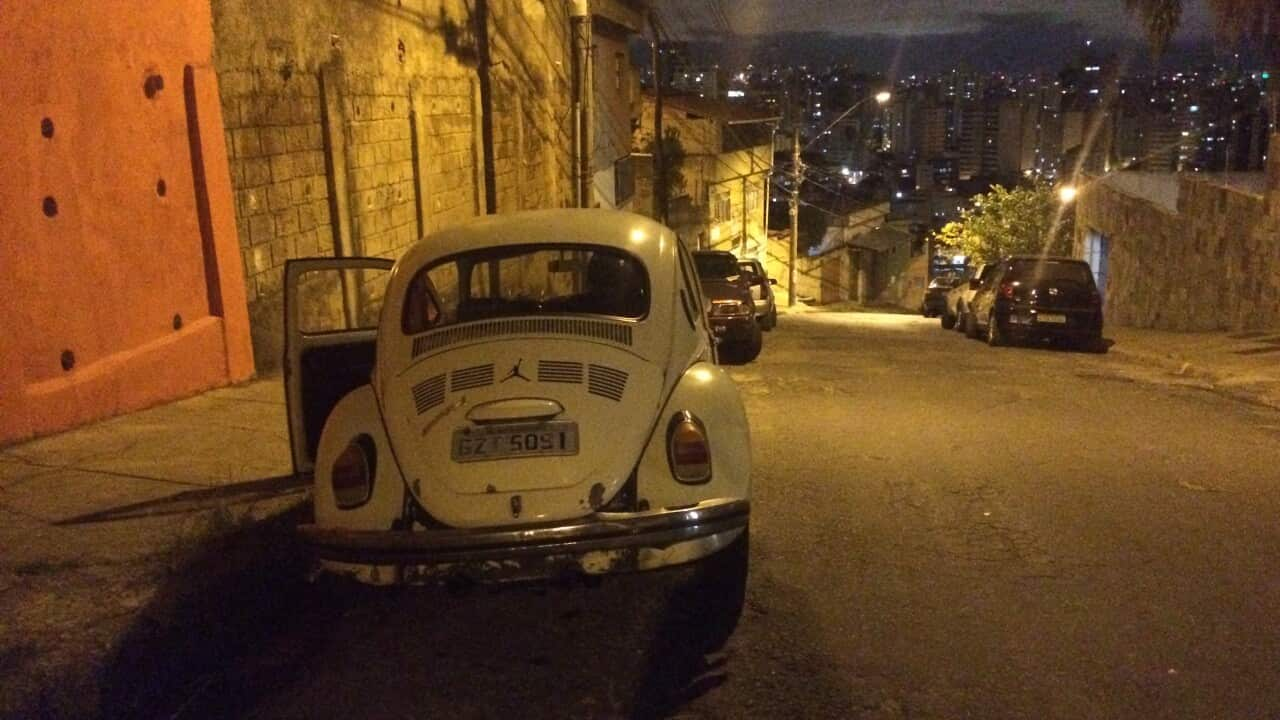The 1977 Volkswagen Beetle chortles to a stop and Luciana shoulders the passenger door open. I jump in the back and attempt a handshake with Carlos that I can never quite pull-off. It’s Saturday evening and we are on our way to Aglomerado da Serra in south-central Belo Horizonte. Home to over 50,000 people, it is one of the largest groupings of favelas in Brazil. A friend of Carlos is having a birthday party and they’ve invited me along.
It’s been two days since the Senate stripped President Dilma Rousseff of her powers and temporarily stood her down. It’s a volatile political landscape and the country is largely divided between those who support Rousseff and her Worker’s Party (PT) and those who want them gone.
On April 17, Rousseff suffered an overwhelming and ugly defeat as over 70 per cent of the lower house in Congress voted to impeach her. They had grounds for this based on allegations that she used money from government-owned banks to conceal a budget deficit ahead of her previous election. The case was sent to the Senate where by a simple majority vote she was stood down.
Michel Temer, leader of the centrist Brazilian Democratic Movement (PMDB), was sworn in as interim President for the duration of the impeachment trial. After his first press conference on Friday, he unveiled a new 22-person Cabinet, made up entirely of old, white men.
I bring this topic up in the car and anger darts across Carlos’ eyes. Luciana huffs and simply responds with "Brazil". Not since 1979 during the military regime has there been a Cabinet without a woman. Those with African decent represent just over half of the Brazilian population.
We are driving into Serra now and the streets start to narrow. Kids jump to the side as we pass through their basketball games and manoeuvre potholes.
Carlos explains to me that before Luis ‘Lula’ da Silva and PT came to power in 2002, it was a struggle for his family to buy a fridge. Over the 13 years of leftist reign, PT spent billions of dollars on social programs to raise the standard of living, facilitated university access for those who couldn’t afford it and annual minimum wage increases became state policy.
A man of the people, Lula was raised in a poor, illiterate family in the northeast of Brazil. In 1980 he founded the first major socialist party in the countries history and eventually worked his way up to the countries top job. PT was re-elected in 2010 under Dilma Rousseff, who continued with Lula’s ideologies.
We lurch around a street corner and come to a rattling stop. Carlos positions his Beetle securely against the pavement and we jump outside. The birthday boy Gão greets us at the car and leads us to his home, weaving his way through a narrow, brick-walled maze. Once we arrive, we head to the roof and marvel at the view, the Saturday night-lights of Belo Horizonte twinkling at us from below. Gão’s father is cooking some meat over coals and friends are scattered across the roof, laughing and chattering. Someone pours me a glass of red wine and the sharp flavours warm me.
I find myself in a conversation about operation Lava Jato - a large-scale corruption investigation into the state-controlled oil company Petrobras. It has implicated hundreds of current standing politicians and businessmen, including Lula, and several billion-dollar companies.
To begin to comprehend just how complex the web of corruption has become, let’s jump back to the raucous and nasty session of Congress in April.
Broadcast across the country, each of the members of Congress had a chance to wail their arms around and shout into a microphone. Sexist and homophobic slurs were exchanged and members literally spat at one another. At the height of tensions, Jair Bolsonaro, a right-wing Congressman, dedicated his vote to a man who allegedly oversaw the torture of Rousseff in the 1964-1985 military dictatorship.
Of those 513 members who voted to impeach Rousseff, 303 of them face charges for corruption or are being investigated for crimes. In the Senate, 49 of the 81 representatives face charges. Even the acting President, Michel Temer, along with six of his newly appointed staff members are under investigation surrounding the Petrobras scandal. With the scope of Lava Jato still far from over, this utter mess of a political system won't be cleaned up anytime soon.
For now, the business-savvy Temer is in charge and he has promised to restore investor confidence by slashing the fiscal debt. At the end of the day, Brazil is in a recession - the worst in decades - and PT has to shoulder some of the blame. Perhaps a change in power will be a good thing for Brazil’s economy, which not too long ago was considered as one of the fastest-growing in the world.
His stance on diversity however, is a serious concern. How this conservative new government will go about restoring the blatantly obvious racial divide and ever-escalating violence in this country will be something to be seen.
"Alright, enough politics," Carlos announces to cheers and I’m whipped back into reality. I take a gulp from my wine glass and welcome the change of topic. I wonder if it will ever make sense.
Elliot Constable is a freelance journalist currently based in Brazil. Follow him on Twitter and Instagram.

